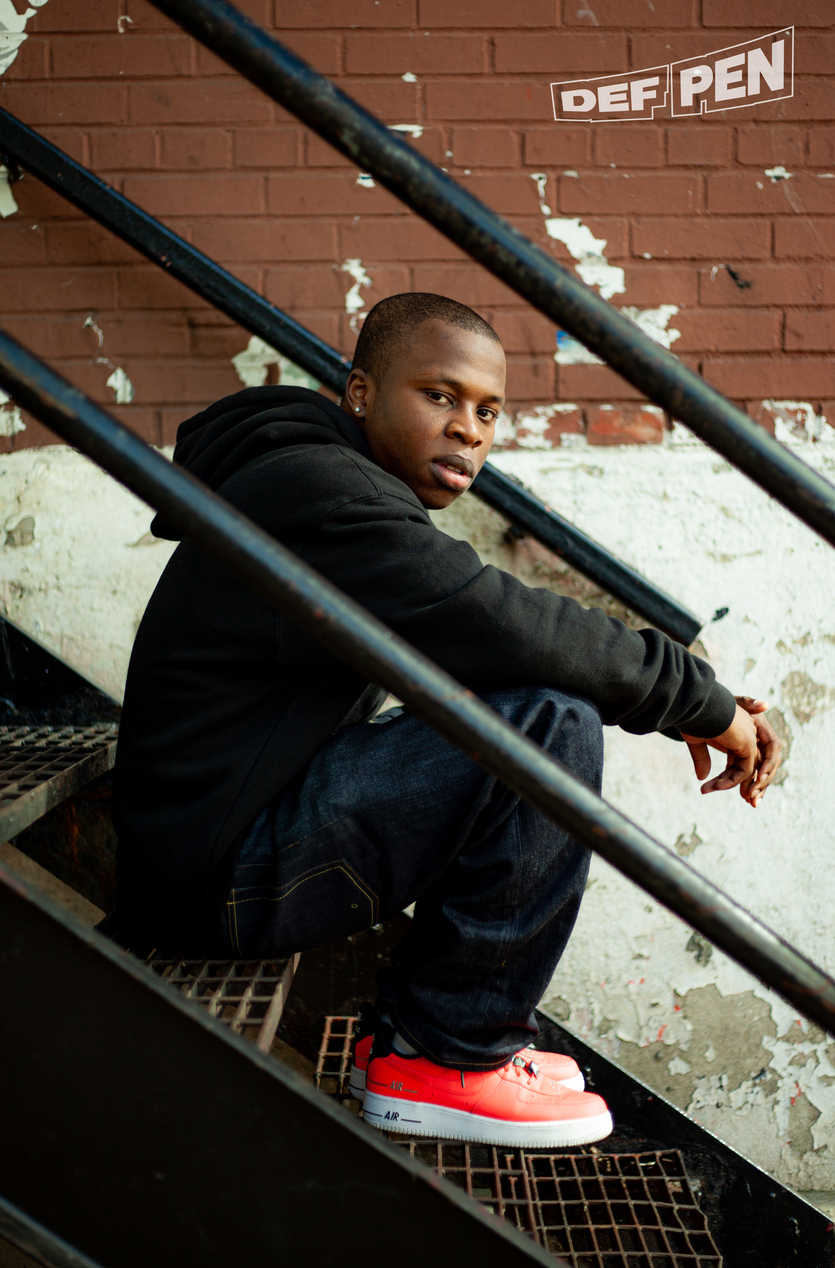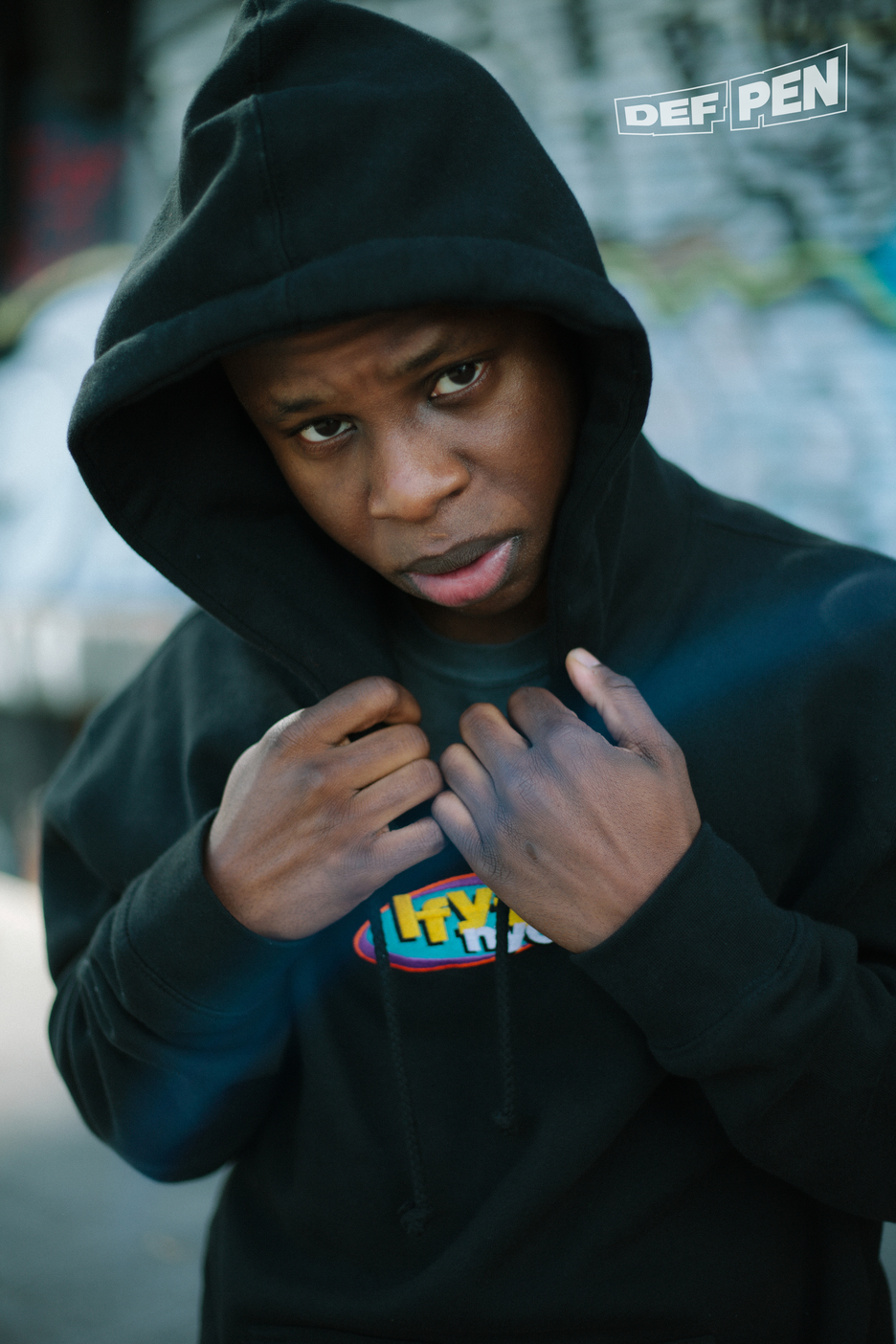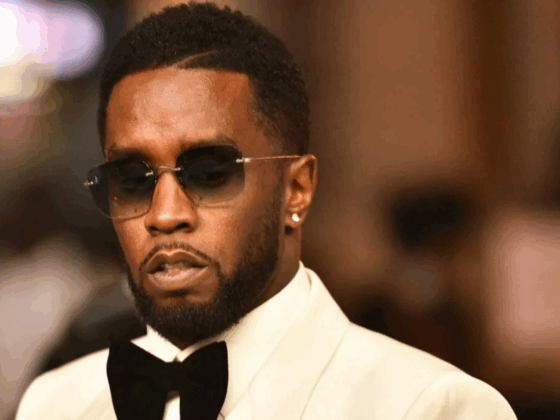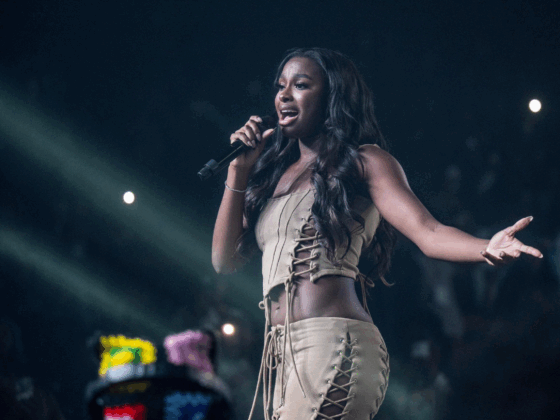
Often, the story behind the project or single is as interesting if not more interesting than the actual product. Coming out of Brooklyn, H-D has a wide range of life experiences that contribute to every bar he’s ever rapped. From serving in the marines to visiting the New York Philharmonic, he stands out as an intriguing figure in music. In this in-depth interview, the New Yorker connects with New Jersey native Ryan Shepard to talk about Shakespeare, transitioning from corporate America to music and his project, Gallery Fantastique.
Ryan Shepard: I guess the first question I have pertains to what’s going on in the world. This year, I’ve been asking everybody about how they’ve managed to keep going despite all that’s happened this year. From the pandemic to police brutality, how have you been holding up?
H-D: Like everyone else, I am adapting and adjusting. As it pertains to my career, I’ve been building relationships, hanging around the right people, and improving as an artist. When I get in the studio, I’ve been making sure that we’re creating quality music.
I’ve also made sure that we’re putting ourselves around people who have a younger perspective because a portion of this business is driven by the young culture. It’s really important to put yourself in that realm, so you understand that you can grab some of those ideas
With social injustice and police brutality, it’s always been a thing. It’s not new to the world. It’s not new to me. It’s not new to my eyes. It’s just one of those things where you are happy that it’s being exposed more because of cameras and social media. It’s great to see that it’s becoming a bigger issue now.
There are a lot of things that we need to work on within ourselves, our culture, and our people before anything. Yes, obviously, there are a lot of things being done wrong in the world. There are a lot of things being done in Africa and other parts of the world. There’s a lot of injustices being going on around the globe.
Within our country, we just need to make sure that we police ourselves and we govern ourselves. Also, we need to pay attention to who we vote for within states. That includes governors, mayors, council members, and making sure we are mindful of all of those elements.
Definitely. That’s the biggest thing. We’ve got to remain focused on what we can control and try not to get hung up on everything else.
One of the things I wanted to ask you about is growing up in Brooklyn. Over the years, everyone from Big Daddy Kane to Bobby Shmurda has come out of Brooklyn. Having grown up there, what do you think it is about Brooklyn that allows it to produce so much talent?
There’s a lot of inspiration in Brooklyn. There’s a lot of art in Brooklyn. There’s a lot of stories in Brooklyn. There’s a lot of ideas here too. There’s also a lot of new construction here as well. There’s always something new taking place within Brooklyn. When you’re in that realm as an artist, you’re going to be fixated on it because it’s within your realm. You’re also going to create based upon what you’re seeing. Not to mention, the social network within Brooklyn is phenomenal. Depending on where you live, you can live down the block from a curator, executive, etc. You just don’t know. There are so many people that you can connect with that can put you in a position to move forward within your career. I think that’s why Brooklyn is special; everyone is so close together. Again, a lot of inspiration comes from the art, culture, and incidents that happen within Brooklyn.
Growing up, I was inspired by my surroundings and the people that I was surrounded by. I think that’s what inspires other artists and has encouraged them to go further and do big things. Once you have the support from Brooklyn and the streets, you’ll definitely make a good impact.
While preparing for the interview, I learned that you were in the armed forces. That immediately raised my antenna because my stepdad was in the military and I know that shaped parts of his life. As an artist, how did your experience in the military shape your perspective of music and everyday life?
Within music, it definitely taught me about professionalism and structure. You have to incorporate structure and professionalism within your career because this is a business. It’s the music business and you have to understand the systems within it. You have to understand who has control of what, job titles, etc.
Job titles mean a lot in the military. Everyone has a title and the title comes with a certain responsibility. It also symbolizes their capabilities and expertise. In music, you have these A&Rs, executives, chairmen, etc. and you know what each title means. When you are actually able to put yourself in a position to connect with these people, you must adapt depending on who you’re dealing with and you always have to give 110% when you’re dealing with these different people.
That is a broad perspective of how I brought what I learned in the military to the music industry. I had to understand the structure, job titles, and a few other things so that I would know how to conduct myself and carry myself as an individual.
What was the second part of the question you asked?
How did your time in the military shape your perspective outside of the music industry?
Within the military, you’re always going to come across new challenges and deal with adversity. There’s never a sweet spot. It’s always a drive. You’re always going against new terrain. You’re always dealing with different problems, putting together new solutions, learning about new systems, and studying new technology. You’re also sitting around really important who can make great decisions. There are people from the White House and the National Institute of Health.
When I came out of the military, I had to adjust. I thought back to when I first joined the military. I was a basic civilian and things were new and different when I first went in. I was sitting with different people from all walks of life. When I got out, it was like going back into a different, new world. I’m a veteran. I’m this former Marine who learned about these different values and how to conduct myself. Now, I’m trying to get a job in the corporate world and I’m almost different in a sense because I have a different background. I’m always trying to be on time, be the leader, and all of these other things that people aren’t used to all of the time. When they look at you and they see that you’re young, they’re like, “Wait, who are you?”
Also, being an African American man is a different experience. I’m a young Black man going into the corporate world trying to establish myself in this society where few people have my experience. I’m not meeting veterans on a daily basis, so nobody really understands what I’ve gone through or what I’m going through right now. Being around normal people, everyone is having fun and relaxing. Meanwhile, I’m tense because my old work environment was so stressful. I’m going into this new world where everyone is more relaxed. People are showing up late.
I ended up getting a job as a manager at this dentist’s office. People were showing up late, no one’s taking it seriously, people were being disrespectful and I’m like, “Whoa, I’m not used to this.” So, there were these things that I was trying to understand. There’s a lot of things I could go into that were just super weird from when I was getting out. What I’m trying to say is that I had to really transition myself into becoming that normal, New Yorker.
“People are comparing you to one of the greatest of all time. Now, you have to prove yourself.”

It’s definitely a transition. I do think that the point you made about taking the business side of the industry is interesting. It makes me think about an interview I did with Michael Epps of The Chi. He’s about 14 or 15 years old, so he’s growing up in the industry and learning things as he goes. Given your experience in the military, I think it’s definitely helpful to have that professional background. It sets you up to thrive on the business side of the industry that artists sometimes struggle with.
Right. Absolutely, it also taught me to be a leader. Being a leader is super key and I think that’s why I was able to get that position as a manager. Being a non-commissioned corporal officer was different because when you tell these kids to be somewhere at 6:30 they’re going to be there. If you tell someone to be at the dentist’s office, nine times out of ten they’re not going to be there. You can’t scream at them like you would do in the military. You would chew them out or make them go work out. I can’t say, “Hey Sydney! You were late so I want you to come in at 5:30 a.m. You’re going to run around the block three times because you were late.” There are things that you can do in the military world that you can’t do in the civilian world. One of my supervisors said, “Don’t be so tense with them. You don’t have to be how you were in the military.” There are certain things that I wasn’t able to do, but I had to learn that. I was just getting used to the people and understand that it’s not as severe as where I was working.
During the time you were working at the dentist’s office, had you started rapping already? At what point did you decide to make music a full-time career?
I got out of the military last May. Before that, I was in the studio at the beginning of 2019. I was actually active in the studio because of one of my sergeants in the military, Noah. He was my McMap instructor. That’s like karate, Jiu-Jitsu, and all of these other things mixed in. He had a studio and we had a good vibe. It was a home a studio in Fredericksburg, Virginia. I would go to the studio all the time and I would knock out freestyles whenever I could. Then, I would shoot videos for all of the freestyles. Throughout 2019, no, no, no. Excuse me. At the end of 2018, I was doing a bunch of freestyle videos and releasing them. I was doing it just to get a feel for it again. When I was 16 years old, I was going to the studio and all of that, but I hadn’t gone in all of these years. At that point, I was getting back into it, familiarizing myself with the recording process and everything like that.
I didn’t take it seriously until “Ghetto Sunday” dropped. October 13th is when it dropped last year. That’s when it became a full-time thing. But again, it was always my love. I was always reading. I was always writing. I was always working on my craft no matter what. That was always happening. Even when I was in the military, I was always writing and reading. I think those are the key elements of becoming an MC, artist, or songwriter. You always want to make sure that you’re doing that. As far as the recording aspect of it, I started getting into the studio and familiarizing myself with the recording process at the end of 2018. Once “Ghetto Sunday” dropped last October and it went viral, I made an effort to move around with the music and be seen. I was like, “Ok. This is putting you out there. There’s no way to turn around. People are comparing you to one of the greatest of all time. Now, you have to prove yourself.” I’ve always wanted to live up to the challenge. So, yeah. I ran with it.
You mentioned that reading and writing are the two most important aspects of being an MC. While I was getting ready for this interview, I saw that you posted a video of the New York Philharmonic on your Instagram page. Adding your most recent project, Gallery Fantastique, you compare your music to fine art. Putting together all of those different mediums, I wanted to ask you about your inspirations for music. What kind of books are your reading? Are there any visual artists that you’re following?
My inspirations are pretty much everyone. As far as literature is concerned, I read a lot of Edgar Allan Poe, William Shakespeare, Leo Tolstoy, James Baldwin, Maya Angelou and Langston Hughes. It varies. It depends on what I want to pick up that day. A lot of what I read is based on my emotion. I consistently read a lot of Shakespeare. I’m always picking his lines apart and trying to make my lines almost similar but in a more refreshing way. He’s a huge inspiration for my writing.
As far as music is concerned, I listen to a lot of Prince, Mozart, etc. I listen to a lot of Franz, Haydn — I listen to a lot of classical. I listen to country and R&B. I listen to Madonna. She’s one of my favorites. I listen to Sade, Whitney, Mary, Stevie Nicks, etc. I’m listening to indie rock, hard rock — I listen to it all.
All of that is because I’m a student of literature and I’m a student of music, so I have to remind myself every day to study these individuals. I also have to study these individuals to take some of their artistic elements and create a better version of myself.
That’s pretty much where the idea of Gallery Fantastique came from. It was actually a project for school. My professor wanted me to go to a symphony and it was the first I had gone because I never had actually thought of going to one. So, I ended up going to the Philharmonic and it was amazing. The setting was amazing. I was looking around and I was like, “Wow, I’m the only Black person here. It’s really funny.” I met some good people there and the music was amazing. It’s crazy. I was looking around and I was like, “Wait, I’m the only one.” I like that feeling because it feels like you’re the first to do it. I’ve always admired that feeling.
When I was listening to the music being played. I was thinking of songs. I was thinking of music. I was thinking of a way to really relate it to art and paintings. From there, I started thinking of ways I could really make a project out of this experience. I forget what the first name of the symphony was, but it ended with the word, “fantastique.” That’s where I got the title, Gallery Fantastique. With that project, I wanted people to feel as if they were walking through an actual gallery. As you’re walking through this gallery, you’re hearing different tunes of music as if you are listening to an orchestra. Each painting is saying certain things, but when you look at a painting you get more than one perspective. You could have a hundred different perspectives on one painting.

Switching gears, I watched a freestyle you did with Power 99 in January. You rapped for 27 minutes without stopping. As a listener, I hear the finished product. I hear what Funkmaster Flex, DJ Hed, Sway, etc. posts. I don’t get to see the process. What kind of preparation do you put in for a 20-minute freestyle on the radio?
First and foremost, I want to say thank you to Cosmic Kev for providing me with that opportunity because he genuinely reached out and told me that he thought I was dope. He invited me to the station to do what I do best, but he wanted to challenge me. During my time in the military, there was always a challenge and I had to live up to that challenge. I had to give 110%.
When I was getting ready, I challenged myself to do the longest freestyle ever on their station. I wanted to remember almost every song that I’ve ever done. I wanted to remember any verse that I’ve written down but never performed. I wanted to put it all together in this freestyle, so I locked in. I went to a different world.
Initially, I did 15 minutes, but the footage got lost because the videographer lost the SD card. When that happened, I went back to Philly and Cosmic Kev said that I was going to have to do it again. This time, I challenged myself to do 20 minutes instead of 15 minutes. I didn’t select any beats. I just said, “Give me what you’ve got. Whatever you’ve got, throw it my way.” I was determined to lock in and just do it. I don’t think any rapper has gone on and done that. Not yet.
That’s going to be tough to beat. Having had to memorize poems and things for school, I think the most I could do is about three or four minutes. To watch someone do 20 or 30 minutes is wild. Getting into the project, there were a lot of different themes you brought together. Earlier, we talked about the gallery concept. Another theme you touched on was materialism. You talked about materialism on “Blood On My Timbs,” “Law Abiding Citizen” and a few other songs. What led you to discuss materialism on this project? Was it your life experiences, things you were reading, or something else?
I pulled from life experiences, news stories, movies, etc. I pulled from Training Day. There was a line where I said, “I’m getting mistaken as blood because I’m red riding through your hood on my second Caine.” I was referencing Caine from Menace II Society. Where I was raised, that atmosphere encouraged all of those lines and everything that I was saying. I’ve seen it and I’ve heard people tell stories. You’ll hear someone say, “Hey, this guy got killed over these shoes, those jeans, the jewelry he was wearing, or the money he had on him.” When you growing up seeing these things and hearing these stories, talking about it is almost like therapy. You’re getting it out of you which is healthy because you don’t want to hold these things. A lot of those lines were coming from what I was going through, what I was seeing in my life. When people make movies, most of the time they are based on real events. Nine times out of ten, these are things that could happen. That’s why I felt like I had to touch base on these ideas. I had to paint a picture of these things but in a mature manner. A lot of the songs on the project were being made based upon my Dad’s experiences, my Mom’s experiences, my cousin’s experiences, people who have done time in prison, etc. The first few lines of the second verse are from the perspective of someone who’s in prison. I just try to pull from a lot of different places and write from many perspectives.

“Blood On My Timbs” is one of the standout songs from Gallery Fantastique. You released it in February right before the pandemic hit. Having released it at that time with no knowledge of what was going to happen, are you hindered in the way that you can promote the EP, or you going full steam ahead with what you had planned?
Absolutely. Absolutely. I spoke to my manager about this. In this generation, everything is so content-driven, everyone releasing so much at one time and people are trying to get out there, so frequently. Your momentum can die out really quickly. You’ll burn out really quickly, so you have to provide people with quality first. If you provide people with quality music, you don’t have to turn around three months from now and say, “I’m going to give you a new project.” What would be the purpose? You have to build on what you have already because music takes time and you have to allow people to grow with each song. It takes time for people to digest each song when there are three verses, stories are being told and different vocabulary is being used. There is a lot there to take in.
Post COVID-19, I was on tour actually. I was going to all of the HBCUs and I was performing the EP and people were loving it. We’re talking about 18 and 19-year-old kids listening to “Blood On My Timbs” and they’re like, “Whoah.” They’re watching and listening and they’re awestruck. When I’m done, they’re inspired by it. They’re not inspired just from a musical standpoint, but a literature standpoint as well. They’ll ask me how I was able to write like that or how I was able to paint a picture in that way from a different perspective.
The goal is to go full throttle with the project right now, but I’ve also been recording. I have so many songs and I am working on a new project, but it won’t come out anytime soon because we have to get Gallery Fantastique more exposure. Also, the new single that we’re about to drop is going to pick up heavy steam if we package it the right way.
Wrapping up the interview, I wanted to ask you a few quick questions. The first question I want to ask you about is jerseys. In a few different videos, I’ve seen you wear a Yankees jersey, Nationals jersey, Dodgers jersey, and San Francisco 49ers jersey. Is there any jersey that you want that you don’t have?
Yes, a Raiders jersey.
The next question I want to ask you is about Prince. What is your favorite Prince album?
Oh, wow. That is tough. Ok, let’s go through my mental rolodex here. God, why did you do that to me?
You can name two if you want.
No, no, no. Bro, Purple Rain. 1984 Purple Rain.
The last question I want to ask you is about freestyles. I’ve heard you rap over Big Pun’s “Beware”, Foxy Brown’s “Get Me Home” and a lot of other classic beats. Are there any beats that you haven’t rapped over that you want to?
I think I’ve covered all of them. All of the beats I liked as a kid, I’ve rapped over. I’ve covered all of them.
Check out H-D’s latest single Cake below.






